Forbes 10 Under $30M: The Most Promising Young Israeli Startups in New York
NYC has been a symbol of success for centuries, a fact that has not been overlooked by the Israeli startup scene. Representatives of the startup nation are setting up shop in the big apple – some following a huge success, some seeking it – all enjoying the benefits of the greatest city in the world. For the first time: Forbes Israel presents: 10 Under $30 million – the most promising Israeli startups in New York
The 10 Under $30M list is comprised of fast growing Israeli startup companies who chose New York as their first (or second) home, in order to bring their innovative promise to the U.S. market. Each company has a unique value proposition in its own field, whether it is cyber security, fintech, retail or any other industry in need for new technologies.
Our decision process included deep research, conversations with industry leaders, and discussions among Forbes Israel’s editorial committee. We limited our range of choices by looking only into relatively young companies, who have raised no more than $30M in funding (by August 25th, 2019, when the prize was announced to the winners). However, we chose those who have a proven track record of customer engagement and have shown fast growth and success in the U.S. market.
Another criterion was that at least part of the founding is either Israeli-born or based in Israel. In fact, most of the chosen companies on the least have their entire R&D centers in Israel, while business units are based in New York.
The chosen companies on the list are part of an interesting industry-focus shift in New York in recent years. “We used to see mainly B2C companies in the fields of Ad-tech and video in New York, but now we see more new companies in fields such as enterprise software, fin-tech, cyber and retail, focusing on big data and artificial intelligence”, says Guy Franklin, General Manager of SOSA NYC innovation platform. Sosa was recently chosen to build and operate the official Global Cyber Center, as part of the Cyber NYC initiative, one of many tech initiatives of the NYC Economic Development Corporation (NYCEDC) which attract tech companies to the big apple.
Big City Life
Hundreds of Israeli startups are currently operating in New York. Starting an office or operations in the city makes sense, as the startups’ clients and investors are here. New York City is the financial capital of the world, with the biggest financial institutions and banks, as well as leading players in retail and e-commerce.
Moreover, New York is becoming a strong hub for tech giants, with Google planning to double its size in the city, and Facebook expanding their offices. Other industry leaders such as Salesforce and Spotify chose New York as their HQ location, as well as many up and coming direct-to-consumer (DTC) brands.
One of the hardest things for Israeli startups who move to New York, or to the U.S. in general, is understanding the different ways in which business is done in this market. The cultural differences between Israelis and their American counterparts are huge, especially when trying to close deals. “Israeli business dealings are very direct and abrasive. If you don’t want to make a deal, you’ll just say so. However, Americans are initially always polite and nice. 99% of Israeli’s can’t tell if the other side really wants a deal, or is just being nice”, says Guy Poreh, founder of Playground accelerator for high growth tech startups in New York, “This often leads not only to missed opportunities, but creates feelings of frustration and resentment”.
One way to overcome cultural differences is hiring local talent. “The less diversity you have at the get-go, the more difficult it is to create that culture later on, and hence companies should hire local talent as early as possible”, explains Lior Prosor, General Partner at Hanaco Venture Capital, a New York and Tel Aviv based venture capital fund that invests in startups from the Israeli ecosystem, “hiring locals that have worked within Israeli companies or foreign companies in the past, who know how to manage the cultural differences, is a big plus”
THE LIST: 10 Under $30M

Commonsense Robotics
CATEGORY: On demand logistics
FOUNDERS: Elram Goren, Eyal Goren, Ori Avraham, Shay Cohen
EMPLOYEES: 130
EQUITY RAISED: $26M
INVESTORS: Innovation Endeavors, Aleph, Playground Global
In today’s online consumption environment, delivery is expected to be fast. Not just within one day, but within one hour. While this is great news for consumers, it’s quite a headache for retailers. The last-mile challenge is not new to anyone working in retail, and smart technologies can help reduce costs while increasing consumer satisfaction.
As such, CommonSense Robotics helps retailers offer 1-hour delivery services, using automated Micro-Fulfillment centers, built in the heart of the city. This on-demand supply-chain service, founded in 2015, utilizes robotics and AI, and, as the company’s founders promise, can reduce operational costs.
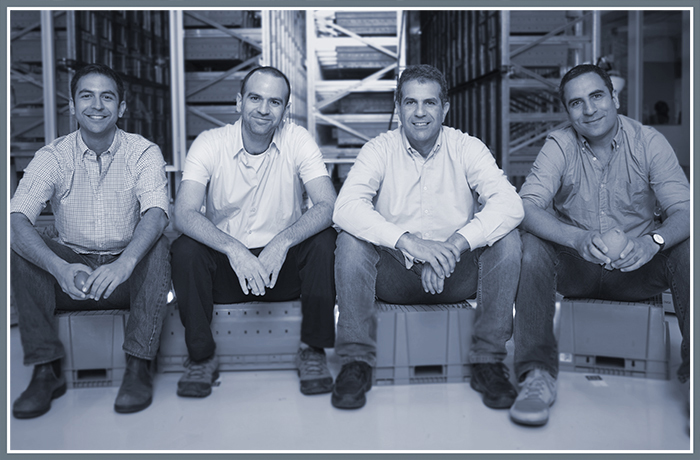
“We’re not competing with Amazon, we’re enabling others to offer the same or even better logistics than what Amazon is doing,” explains Elram Goren, Co-Founder and CEO of Commonsense Robotics.
In its short period of existence, the company secured large-scale customers in Israel. For example, Super Pharm, the largest health and beauty retailer in the country, and Rami Levy, one of Israel’s largest grocery chains. Ten new fulfilment centers will be built across Israel in the next couple of years, with the first one launched in Tel Aviv.
Unlike many Israeli startups entering the U.S. market, Commonsense Robotics will not only open an office with a sales team in New York, but a whole stack of physical fulfillment centers. “New York is a more expensive city to operate in than Tel Aviv, but at the same time it represents a huge opportunity”, Goren adds.

Aquant
CATEGORY: Enterprise Software
FOUNDERS: Assaf Melochna, Shahar Chen
EMPLOYEES: 35
EQUITY RAISED: $12.8M
INVESTORS: Lightspeed Venture Partners, World Trade Ventures (WTV), Angular Ventures, Silvertech Ventures
“Think about what it would be like to let new people in the organization gain 20 years of experience in 20 seconds.” This is how Shahar Chen, Co-Founder and CEO of Aquant, describes his company’s solution in one sentence. And, indeed, it’s a great way to simplify what he and his team do.
Aquant, which was founded in 2016, utilizes artificial intelligence to fix the knowledge gap problem when handling complex equipment or technology-heavy products, providing actionable service recommendations for any type of equipment fault. “We can analyze structured or unstructured data and apply it to the least experienced technicians, so they can make decisions like the most experienced guy in the company. By doing that, we increase the uptime of the equipment,” Chen explains.

U.S-based customers include giants like J&J, Stryker, and Home Depot. However, the company plans to expand into Europe next year, and then to the Far East. While sales and marketing are based outside of Israel, the R&D center will stay within the country.
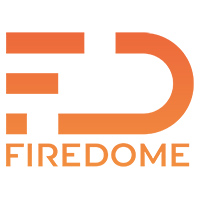
Firedome
CATEGORY: IoT security
FOUNDERS: Moti Shkolnik, Orr Chen, Sharon Mirsky
EMPLOYEES: 25
EQUITY RAISED: $4.5M
INVESTORS: World Trade Ventures and private investors from the consumer electronics industry
An IoT cyber attacker can disconnect all of one manufacturer’s smart TVs from the internet, or make all smart AC devices in one building shut down at once. With more than 8 Billion iOT devices currently in use worldwide, according to IoT Analytics, and more than 21 Billion expected by 2025, the need for cyber protection designed for IoT is growing fast.
Firedome (founded in 2018) offers dynamic real-time endpoint cyber-protection for IoT manufacturers. With offices in New York and Tel Aviv, the company employs cyber, embedded, research and analysis experts, taking advantage of some of the unique talent found in Israel: “Many of our employees comes from cyber units in the Israeli army, and their experience is irreplaceable”, says Co-Founder and COO of Firedome, Sharon Mirsky. In addition, Firedome’s Co-Founder and CEO, Moti Shkolnik, is the former head of Israel’s Prime minister office cybersecurity unit.

Many solutions in the IoT security space are based on security-by-design, and do not change over time, according to Mirsky. However, IoT cyber threats require a dynamic solution that keeps evolving, as attackers become smarter. When a new type of attack targets a Firedome protected device, Firedome’s solution identifies it, and automatically applies the same protection logic to all other devices protected by Firedome. Thus, it adapts to new threats faster, across a large network of devices and allows IoT manufacturers to continuously protect their devices from cyberattacks.
Firedome is working with Universal Electronics and other large electronics manufacturers.

Snappy
CATEGORY: Enterprise gifting platform
FOUNDERS: Hani Goldstein, Dvir Cohen
EMPLOYEES: 45
EQUITY RAISED: $10M
INVESTORS: 83North, Hearst Ventures
Remember that time when you got a towel set from your employer for the holidays, but didn’t really need it? Or when you got that summer gift card from your boss, for a chain of restaurants that you’re not a big fan of?
As competition on talent grows, making sure that employees feel appreciated and stay motivated at work is harder than ever. Snappy helps employers give gifts that fit each employee’s needs, by building an incentive program that sources products and experiences from various brands and retailers. This way, an employee can choose their gift from a list of optional ones, and the employer doesn’t have to guess if they would like a Google home device for the holidays, or two tickets to the movies.

“The idea was to combine the excitement of getting a physical gift together with the flexibility of a gift card”, says Hani Goldstein, Co-Founder and CEO of Snappy that was founded in 2015. The company started as a marketplace for consumers to send gifts to their friends, but with growing interest from businesses, turned into an enterprise solution.
Today, more than 400 companies use the Snappy platform. Some customers have more than 30,000 employees. To make sure that such large numbers get their gifts on time, Snappy partners with distributors such as Amazon, Best Buy and Cloud 9 Living.
Snappy has offices in Israel and the Ukraine, used mainly for R&D, while sales and marketing functions are in their New York office. The company was also included in Retail Accelerator XRC Labs’ third cohort of startups.

PlainID
CATEGORY: Identity Management
FOUNDERS: Gal Helemski, Oren Ohayon Harel
EMPLOYEES: 55
EQUITY RAISED: $13M
INVESTORS: Viola Ventures, Capri Ventures and Springtide Ventures, iAngles
Controlling information and data flow within a small team is easy, but as organizations grow into thousands of employees, from different management levels and teams, or thousands of customers spread across the globe – managing who’s who, or who can access what data, becomes difficult.
Organizations face two challenges in this process. The first one is about the ability to understand who can access your most valuable resources, and control their level of access. The second is around data governance and compliance with regulations when launching new services.
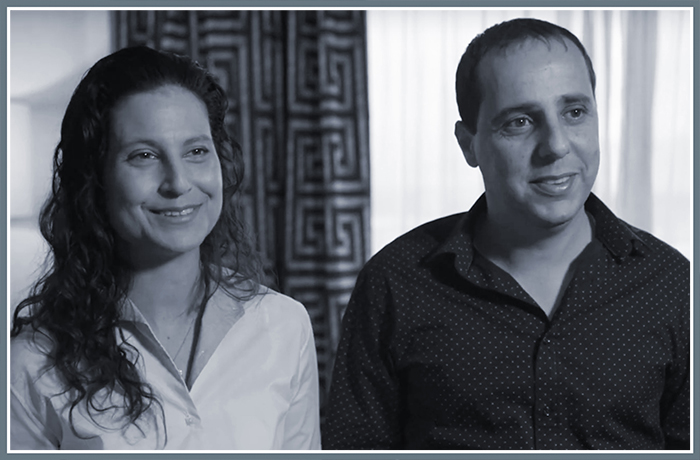
PlainID’s tagline is “The Authorization Company”, exactly for that reason, as the company’s founders are trying to make authorization processes faster and easier to implement. Or, as Oren Ohayon Harel, Co-Founder and CEO of PlainID, describes it: “turning identity to data you can consume.”
The company, founded in 2014, provides a platform solution to control an organization’s entire authorization process, but unlike other authorization platforms, it’s all based on the organization’s business logic. The platform allows teams to implement literally any kind of rule, without having to use code. Moreover, PlainID’s authorization-as-a-service platform eliminates the need to develop compliance authentication for every single application or service using that data. This makes authorization processes faster, producing ROI faster when launching new services.
PlainID’s customers include the World Bank, Freddie Mac, SAP as OEM and more. “We’re working with enterprises that are highly regulated and have a complex environment, using cloud, on-premise, or hybrid service technology delivery methods, and most of them are in the middle of a technological transformation process”, Ohayon Harel explains.
Plain ID has 15 employees in New York, while the whole company’s R&D center is based in Israel.
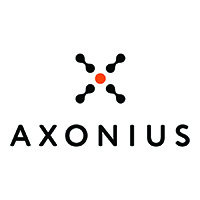
Axonius
CATEGORY: Cyber Security Asset Management
FOUNDERS: Mor Avidor Bartov, Dean Sysman, Ofri Shur
EMPLOYEES: 50
EQUITY RAISED: $37M (Series B round of $20M announced on August 27th, 2019)
INVESTORS: OpenView Venture Partners, Bessemer Venture Partners, YL Ventures, Vertex Ventures
Axonius is a cybersecurity asset management platform that lets IT and Security teams manage and secure all of the organization’s devices. The company that was founded in 2017 works with large enterprises, such as the New York Times or Schrier Electric, as well as mid-market organizations, but the goal is to work with any type of organization.
“While the security industry provides value by preventing a threat or reducing risk from a threat, our solution is a tool that the security teams use”, says Dean Sysman, Co-Founder and CEO of Axonius, “I think of my customers as Batman, and I want to give them the Batmobile. I don’t want to replace Batman. I don’t want to say that we’re Batman, and that’s a very different approach from other players in this field, who promise that their solution is ‘the fix to all your problems’”.

All three of Axonius’s founders served in the Israeli intelligence forces 8200 unit, responsible for collecting signal intelligence and code decryption. Sysman was part of Forbes Israel’s 30 Under 30 list in 2017, and he is currently running the Axonius team in New York, while the company’s R&D center is in Tel Aviv.
Axonius announced its latest series B round of $20M on August 27th, after being chosen for the 10Under$30M list. Thus, it has a total of $37M in funding, but was still included in the list.
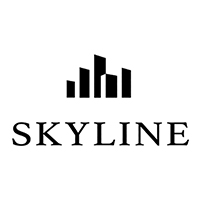
Skyline.ai
CATEGORY: Real estate tech
FOUNDERS: Amir Leitersdorf, Guy Zipori, Iri Amirav, Or Hiltch
EMPLOYEES: 40
EQUITY RAISED: $25M
INVESTORS: Sequoia Capital Israel, TLV Partners, JLL Spark, NYCA, Arbor Ventures, Mindset Ventures, iAngels, DWS Group
“We think that in five to ten years, the only way to invest in real estate will be by utilizing AI technology”, states Guy Zipori, Co-Founder and CEO of Skyline.ai.
How can you utilize AI for real estate? You collect data. Lots of data. In fact, Skyline.ai is already connected to more than 200 data sources and has 10,000 data points for every multi-family asset in the U.S., going back in time up to 50 years. The company, founded in 2017, uses artificial intelligence to extract insights and generate predictions based on the data, trying to predict what will happen to the asset value, to the rent, the occupancy, when will the asset go on market etc.

Even though one would think that this is a classic SaaS company, Skyline.ai’s business model is different. The company partners with commercial real estate companies (usually large investment managers or real estate operators) to build investment strategies, and find opportunities, and form investment vehicles that utilize AI.
Once they find the investment opportunity, both Skyline.ai and their partners will acquire the assets together. The partners will bring their money and LPs, while Skyline.ai has its own LPs. As Skyline.ai brings their own investors, the company would get the management fee and sponsor “promote” for the deal – and that’s how they make money.
The company has offices in New York and Tel Aviv. “We got a warm welcome from the real estate ecosystem in New York City, which is very open to new technologies, and we look forward to the next few years”, Zipori concludes. The team at Skyline.ai is hoping to execute 15 transactions in the next 18 months, and in three years to have 2 billion dollars worth of assets under management.

Showfields
CATEGORY: Retail
FOUNDERS: Amir Zwickel, Tal Zvi Nathanel, Katie Hunt
EMPLOYEES: 50
EQUITY RAISED: $9M
INVESTORS: Hanaco Ventures, SWaN & Legend Venture Partners, Rainfall Ventures, Communitas Capital and IMAX CEO Richard Gelfond
Showfields (founded in 2017) is on a mission to allow every brand in the world to have physical presence. “In the same way that ten years ago companies understood that they need to have a website, and five years ago brands understood that they need to implement e-commerce functionalities within their websites, we believe that in the next five years all brands will understand that they need to have a physical presence. A place where you can walk, touch, feel, engage and shop for their product,” says Tal Zvi Nathanel, Co-Founder and CEO of Showfields.
If you ask any voice activated assistant: “What is the most interesting store in the world?”, it would reply: “Showfields” (really, try it). And that’s what the founders of Showfields tried to create when they built their Soho-based store. Walking into showfields doesn’t feel like walking into a department store, but rather like a discovery experience of art and tech combined. Products on display may include temporary tattoos that last for up to 30 days, vintage designer bags curated by an Instagram influencer, or a bed that monitors your temperature while you sleep.
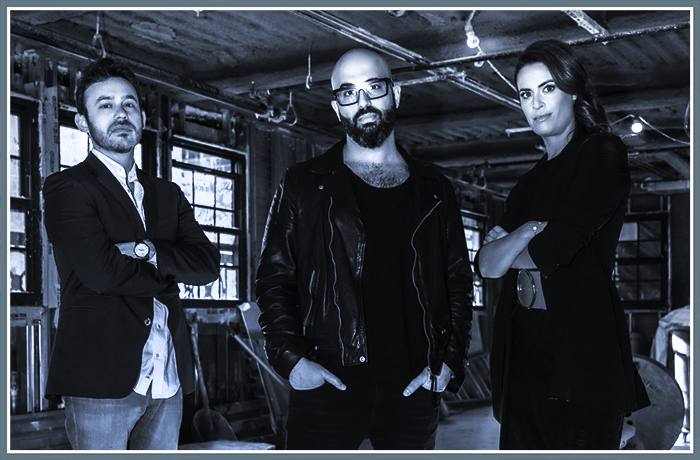
Recently, showfields launched The House of Showfields, which is the world’s first theater-meets-commerce type of experience. Anyone can book a tour and go through a 25-minute experience that takes you through secret doors and slides, while meeting interesting characters while you look at products or enjoy colorful rooms. According to Zvi Nathanel, 25 thousand people have already booked their experience.
Showfields developed an online platform where brands can choose how long they want to be presented in the store, synchronize the Showfields system with their e-commerce platform, and decide which items will be in the store, physically, and which ones would be available only online. “It’s as easy as starting a Wix website,” says Zvi Nathanel.
The second and third U.S.-based Showfields stores are expected to open in 2020, outside of New York. In the meantime, the company plans to expand their R&D team in Israel, and improve their online system.

Homeis
CATEGORY: Immigrant online communities
FOUNDERS: Hanan Lashover, Ran Harnevo
EMPLOYEES: 20
EQUITY RAISED: $16M
INVESTORS: Spark Capital, Canaan Partners, The Chernin Group, Samsung Next, Tim Armstrong, Alexis Ohanian
Moving to a new country can be tough, especially when facing language barriers, the lack of family or a network of friends, and the challenges of access to information that would help one fit in. 260 million immigrants around the world are facing the same challenges.
Homeis was created to help immigrants assimilate, by building strong online communities for local, foreign-born people. The Homeis application brings together immigrants and helps them with critical tasks, such as finding local services, learning about their new society, and connecting with peers in a similar situation as themselves.
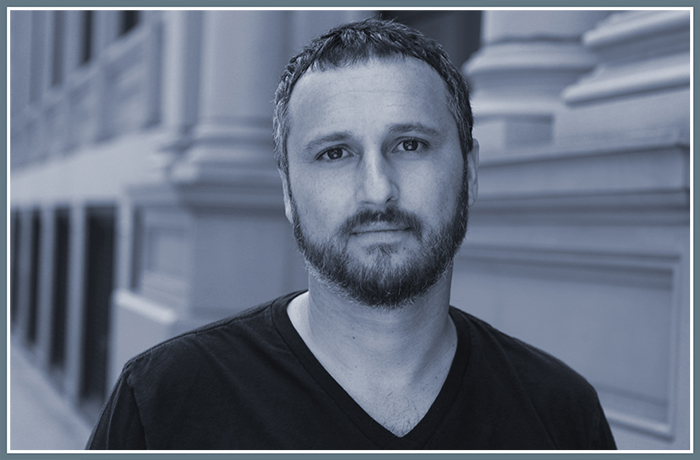
“We’re building a better internet for immigrants,” says Ran Harnevo, founder and CEO of Homeis, who created Homeis in 2017 after experiencing the same challenges himself: “I came here 11 years ago and realized that the internet is undeserving this problem. Immigrant communities are a thousand years old, we didn’t invent them, but from a personal experience I realized that I needed one, and that it’s time to create it.”
After announcing their latest round in August, Homeis has a total of $16M in funding thus far. The company is focusing on growing its user base at the moment, rather than monetization. However, financial opportunities are part of future plans: “Dozens of fintech services for immigrants have been created in the last five years, from healthcare and insurance, remittance and loans,” says Harnevo, “We believe that integrating these services with Homeis will be highly valuable financially.”
Homeis plans to launch its product for Mexican immigrants in the U.S. in October, and launch all hispanic communities in the next six months.
Homeis was started in New York, but also has a team in Tel Aviv. “Like the U.S., Israel is also a country of immigrants. So it’s not a financial or a networking upside, it’s in our DNA”.
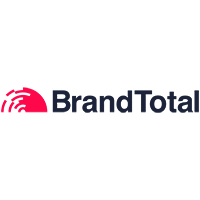
BrandTotal
CATEGORY: MarTech
FOUNDERS: Alon Leibovich, Amir Leshman, Omer Ramote, Oren Dor
EMPLOYEES: 30
EQUITY RAISED: $8M
INVESTORS: Glilot Capital, KDC media fund, Flint Capital, NHN Investment and One Way Ventures, SJ Labs
None of us would be surprised to discover that a 40 years old man would see different ads on his Facebook page, than a 17 year old girl. This might be great for one brand, but not too great for its competitors, who cannot track their competition’s campaigns.
This phenomenon is called “dark marketing”, and it consists of highly segmented, personalized, and retargeted marketing efforts. The problem with dark marketing is the lack of transparency marketers are facing when trying to track competitors.
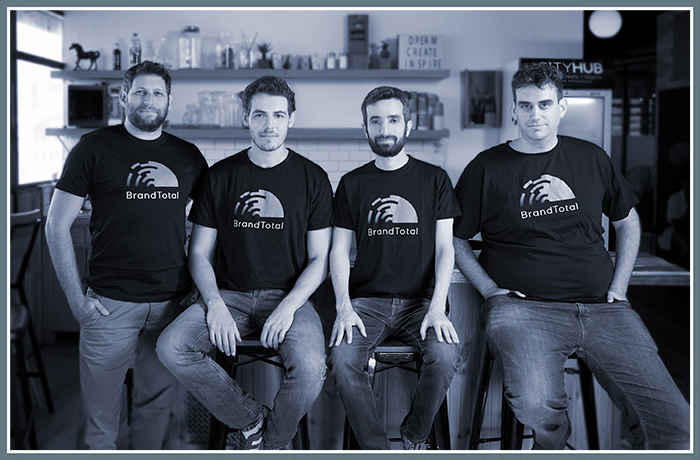
Alon Leibovich came up with the idea to start BrandTotal, when he was facing this exact problem, working for McCann. His co-founders, coming from the Israeli intelligence forces, suggested using cybersecurity techniques, machine learning, and AI methodologies to solve the dark marketing challenge.
BrandTotal’s software is able to spot, collect, consolidate, and illuminate dark marketing campaigns in real time. The company provides marketing analytics for large brands and marketing organizations. “We reverse engineer your competitor’s marketing strategy, illuminate dark marketing, and enable brands to go agile by adjusting their marketing strategy in real time,” Leibovich explains.
Leibovich moved to New York a year ago, and the company’s headquarters are now based in the city, while R&D and product operations are in Tel Aviv.
According to BrandTotal, the company (founded in 2016) works with the biggest fortune 500 advertisers in the world. However, Leibovich believes that this is only the tip of the iceberg: “The highest amount of money being spent by a person in a company is the CMO. Marketing departments are hiring for positions such as Head of Marketing Technology, and I’m seeing the demand for these products increasing”.



